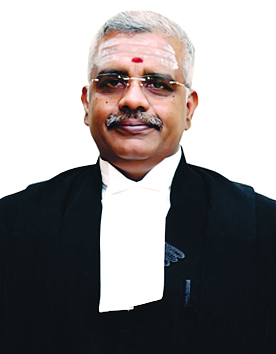
The Madras High Court has taken a stern stance against the Directorate of Vigilance and Anti-Corruption (DVAC) by initiating two more suo motu revision cases. These cases are related to the discharge of Tamil Nadu Minister I Periyasamy and All India Anna Dravida Munnetra Kazhagam (AIADMK) leader B Valarmathi in separate investigations. Justice N Anand Venkatesh, presiding over these cases, expressed deep concern about the politicization of the DVAC.
Justice Venkatesh’s Alarming Observations
Justice Venkatesh did not mince words in his observations, describing the situation as “hopeless” and “shocking.” He expressed frustration at the continuous discharge of politicians in corruption cases, raising questions about undue political influence on the DVAC and subordinate courts. Despite the bleak scenario, he emphasized the need to rectify the problem.
Call for Systemic Change
Justice Venkatesh suggested the necessity of establishing a system akin to Karnataka’s Lokayukta to address such issues effectively. He voiced concerns about the reluctance of legislators to face trial, leading to a series of revision cases. He emphasized that he was addressing a systemic problem rather than being a personal issue.
Previous Cases and Controversies
Justice Venkatesh had previously initiated suo motu revision cases against the discharge of prominent figures, including Tamil Nadu Minister K Ponmudi, former Chief Minister O Paneerselvam, and Ministers KSSR Ramachandran and Thangam Thennarasu in various disproportionate wealth and corruption cases.
DVAC’s Call for Recusal
Notably, the DVAC had requested Justice Venkatesh to recuse himself from hearing the revision petition against the acquittal of Minister Ponmudi and his family members in a disproportionate assets case. The DVAC argued that the judge lacked suo motu revisional jurisdiction and should have issued notice to the High Court on the administrative side before taking action.
The developments underscore the ongoing challenge of ensuring fair and unbiased handling of corruption cases involving politicians in the state of Tamil Nadu.
![]()




